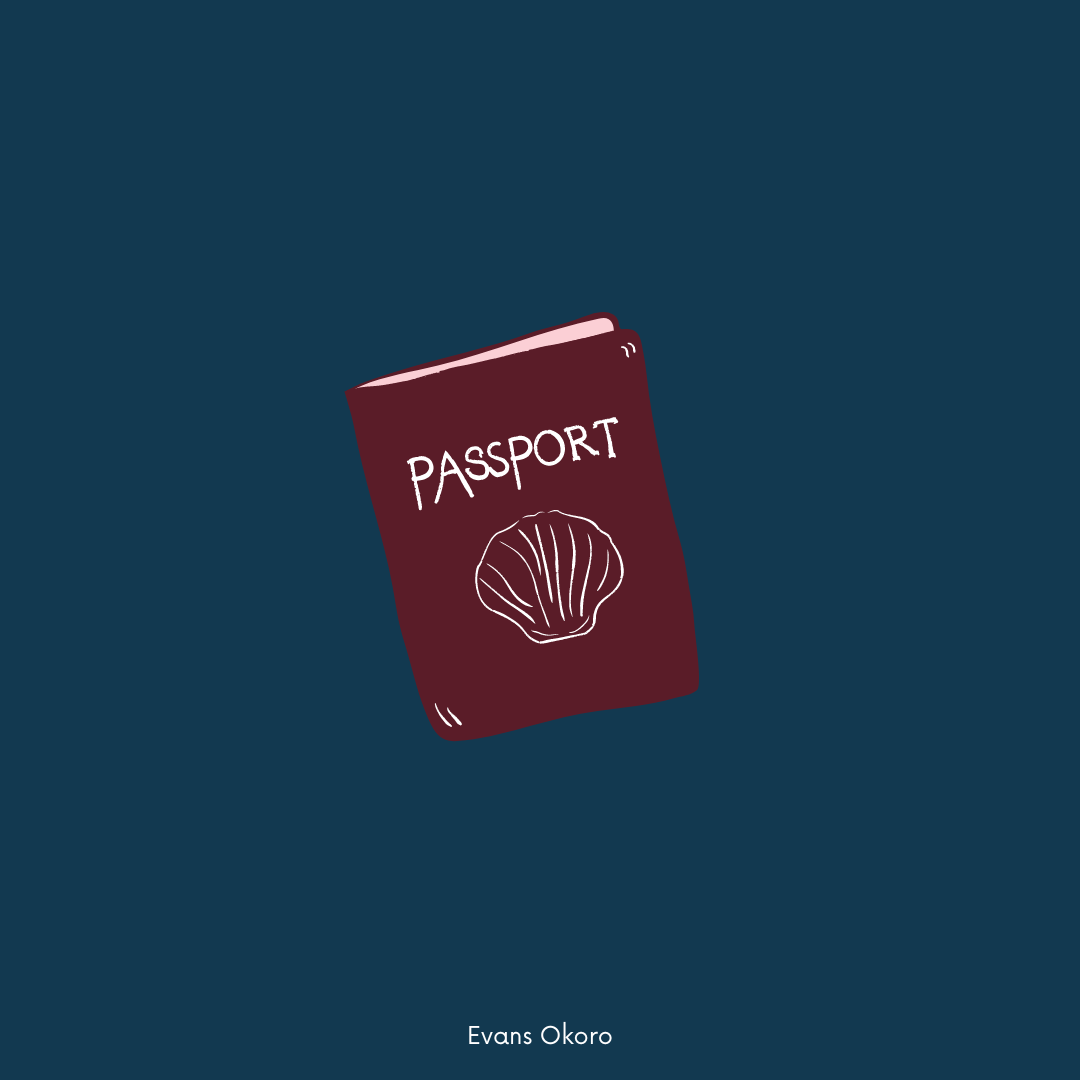What Is Travel Writing and How to Become a Paid Travel Writer in 2024
Are you looking to break into the travel writing niche? Everyone loves to travel, but what’s even more fun for freelance writers is writing about travel. Studies have shown that the median income for travel bloggers is $5,000 per month. This comprises ad revenue, affiliate income, and sales of services/products. So, it’s a rather profitable niche.
I have written many emails and blog posts for travel blogs. It was fun because researching and writing about it felt like a travel experience even without travelling (this takes skill, which I will show you as you read on). In this blog, we will cover what travel writing is and how to get started as a travel writer in 2024
What is Travel Writing
Travel writing is like telling a story about your adventures and experiences when you go to different places. It’s about making readers feel like they’re right there with you.
Travel writers describe their locations and the people, cultures, and feelings they encounter.
It paints a vivid picture with words, allowing readers to imagine and explore the world through the writer’s experiences.
What Travel Writing is Not
Travel writing is not simply recounting facts and figures about places you’ve visited. It goes beyond being a dry travelogue or a collection of itinerary details.
It’s not about bragging or showcasing a perfect, curated life on the road. True travel writing is not solely focused on the traveller; instead, it considers the journey’s impact on the people, cultures, and landscapes encountered.
It’s not a one-size-fits-all genre; each travel writer brings a unique perspective, and it’s not limited to exotic locations—ordinary places can also be rich sources of compelling stories.
Ultimately, travel writing is not just about the destination; it’s about the journey and the stories that unfold along the way.
How Do You Become a Paid Travel Writer?

1. Develop Your Writing Skills
Travel writing involves a lot of storytelling. So, it’s necessary to develop your skills. And reading copywriting books is a sure way to achieve this.
Also, regular practice is a great way to achieve this. I remember interviewing Nicolas Cole on the podcast, and he said he writes like an athlete trains. These people train every day to get stronger. So, he writes every day to get better as well.
Consider writing workshops or online courses to refine your style and narrative techniques. Reading various travel articles can also provide valuable insights into different writing approaches.
2. Create an Online Presence
Establish a strong online presence by starting a travel blog and building a professional website.
If you’re passionate about this, a writing blog is a sure way to get enough practice and testimonials. Also, social media platforms can be helpful. Research has shown that Pinterest is the best platform for travellers to share inspirational location content. If you want to leverage written content alongside your videos, you can also look into Instagram and Twitter.
In summary, an impressive online presence acts as your virtual portfolio.
3. Build a Portfolio
Assemble a portfolio that highlights your best travel writing samples. Include a mix of articles, blog posts, or any published works to demonstrate your versatility and expertise to potential clients or publications. You can also showcase your photography and video skills to add visual appeal.
Regularly update your portfolio with new content and keep it organized by category or destination. Consider creating a professional website to showcase your portfolio and attract potential clients.
4. Identify Your Niche
Defining your niche within travel writing is an effective way to distinguish yourself from the crowd. By focusing on a specific area, such as adventure travel, luxury experiences or budget-friendly tips, you streamline your writing process and appeal to a targeted audience.
This specialization fosters a connection with readers who share similar interests and seek your unique insights.
A well-defined niche can increase your visibility and credibility in the competitive world of travel writing. It positions you as an authority and sought-after expert in your chosen field, attracting potential clients who value your specific knowledge and style of communication.
As you continue to produce content within this niche, you’ll create a consistent brand image that resonates with those interested in this particular facet of travel.

5. Network with Other Travel Writers
Engage with the travel writing community by attending conferences or joining online forums. Networking with established writers can provide valuable advice, insights, and potential collaboration opportunities.
It also helps to stay updated on industry trends and best practices, which can ultimately enhance your writing.
Building relationships with other writers can also lead to guest blogging opportunities or partnerships for joint travel projects.
To achieve this, join Reddits and Subreddits, Facebook groups, and conversations on Twitter.
6. Pitch Your Ideas
Publications are a great way to get noticed. I have gotten several writing gigs from posts I made for publications.
The goal is to pitch your ideas to as many publications as possible. The more publications that publish your content, the better your chances of getting paid gigs, improving your website SEO, and increasing your authority.
So, research and identify publications that align with your writing style and niche. Craft personalized pitches for each publication, adhering to their submission guidelines. A well-crafted pitch increases your chances of getting your work published.
7. Utilize Freelance Platforms
Explore freelance platforms such as Upwork or Freelancer to connect with publications seeking travel writers. These platforms can be a stepping stone for budding writers to secure initial gigs and build a portfolio.
I’m not officially a Travel writer (i.e., my blog isn’t solely focused on travel), but I can confirm that Upwork is a great medium for getting paid travel content for clients)
With your portfolio in place, which includes your best travel writing samples, clients will get a feel of how well you write. So, creating great samples for your portfolio is putting your best foot forward.
8. Offer Your Services
Approach travel-related businesses or websites and offer your writing services. This could involve creating content for travel agencies, tour operators, or companies within the travel industry.
So, how you do this is simple:
- Google travel businesses
- See if they have a blog
- And if they do, find their Linkedin
- Search for anyone handling content or a marketing manager. (CMO, Content lead, Content Manager)
- Reach out to them on Linkedin or get their emails using Hunter email finder
- Offer your services.
It may not be so straightforward. Sometimes, the best way is to ask for a guest post, and if you can get your foot in the door, you can ask if they need your services.
Other times, you should be okay with getting backlinks in the form of guest posts alone. That’s also a form of money if you know what you’re doing.
9. Pitch to Local Publications
Consider starting your travel writing journey by contacting local magazines, newspapers, or community websites. Local publications are often interested in stories that highlight the unique aspects of their region.
For instance, if you reside in a coastal town, you might pitch an article about hidden gems along the shoreline, local festivals, or the best seafood spots in the area. You build a portfolio and connect with your community by focusing on your immediate surroundings.
Example Pitch:
Subject: “Exploring [Your Town’s] Coastal Wonders: A Journey Off the Beaten Path”
Hi [Editor’s Name],
I hope this email finds you well. I am a passionate travel writer residing in [Your Town], eager to share the hidden treasures and unique experiences our coastal town offers. I am proposing an article that delves into the lesser-known spots along our shoreline, providing readers with an insider’s guide to the best-kept secrets in our community. With a blend of adventure and local flavor, I believe this piece would resonate well with your readership.
Looking forward to the opportunity to contribute to [Publication Name],
[Your Full Name]
[Contact Information]
10. Be Persistent and Patient
Understand that rejections are part of the process. Learn from each experience, stay persistent, and be patient. Building a successful career in travel writing takes time, dedication, and resilience.
Remember, you’re not going to be successful from day one. It takes time.
11. Understand SEO and Digital Marketing
Familiarize yourself with Search Engine Optimization (SEO) techniques to enhance the discoverability of your online content. Additionally, grasp the basics of digital marketing to promote your work and expand your reach effectively.
Here are 27 SEO software to improve your search ranking.
12. Negotiate Fair Compensation
As you gain experience and recognition, don’t hesitate to negotiate fair compensation for your work. Understand industry standards and value your expertise as a skilled travel writer.

Key Considerations for Successfully Becoming a Travel Writer
Embarking on a career as a travel writer involves more than mastering the art of storytelling and securing exciting assignments. Here are some key considerations that may not have been explicitly mentioned but are crucial for a successful journey in travel writing:
1. Adaptability and Open-Mindedness: Travel writing often leads to unexpected situations, diverse cultures, and unique challenges. Being adaptable and open-minded allows you to navigate unfamiliar territories with ease. Embrace the unknown, as it often leads to the most compelling stories.
2. Networking and Relationship Building: Building a network within the travel industry, including editors, fellow writers, and professionals, is essential. Networking opens doors to potential opportunities and provides a support system. So, attend travel-related events, engage on social media, and cultivate relationships that can elevate your career.
3. Continuous Learning and Exploration: The world is ever-changing, and so is the landscape of travel. Stay informed about industry trends, emerging destinations, and evolving reader preferences. Continuous learning and exploration keep your writing fresh and relevant and position you as a knowledgeable authority in the field.
Taking it to the Next Level: Building Your Personal Brand
The next step in freelancing is building your personal brand; here are some steps to take:
1. Cultivate a Distinctive Style: Developing a unique writing style sets you apart in a saturated market. Let your individuality shine through, whether it’s your voice, narrative approach, or choice of topics. Consistency in your writing style creates a recognizable brand that resonates with your audience.
2. Leverage Visual Storytelling: Enhance your storytelling by incorporating visual elements. Leverage platforms like Instagram, Pinterest, or a personal blog to showcase captivating images, videos, and interactive content. A harmonious blend of words and visuals engages your audience and reinforces your brand identity.
3. Engage with Your Audience: Building a personal brand goes beyond the written word. Actively engage with your audience through social media, respond to comments, and participate in relevant conversations. Authentic interactions humanize your brand and foster a loyal community of readers who resonate with your journey.
4. Collaborate and Cross-Promote: Collaborate with other travel writers, influencers, or brands within the industry. Cross-promotion exposes your work to new audiences and strengthens your position in the travel writing community. Seek partnerships that align with your values and contribute to the growth of your personal brand.
Wrapping Up
Embarking on a career in travel writing is more than just documenting destinations; it’s about unfolding unique stories. As of 2024, the world of paid travel writing offers lucrative prospects for turning your passion into a rewarding profession.
This guide outlines key steps from honing your skills to building an online presence, pitching ideas, and networking. Remember, resilience is crucial—rejections are part of the journey.
Beyond the explicit steps, embrace adaptability, open-mindedness, and continuous learning. Travel writing thrives on unexpected situations, and staying informed keeps your writing relevant.
Take your journey to the next level by building your personal brand. Cultivate a distinctive style, use visual storytelling, and engage authentically with your audience. Your unique voice is your asset in this competitive landscape.
In closing, the world awaits your travel stories. Equip yourself with these insights, embrace the journey, and let your words transport readers to uncharted territories. Here’s to a successful career as a paid travel writer in 2024 and beyond.




